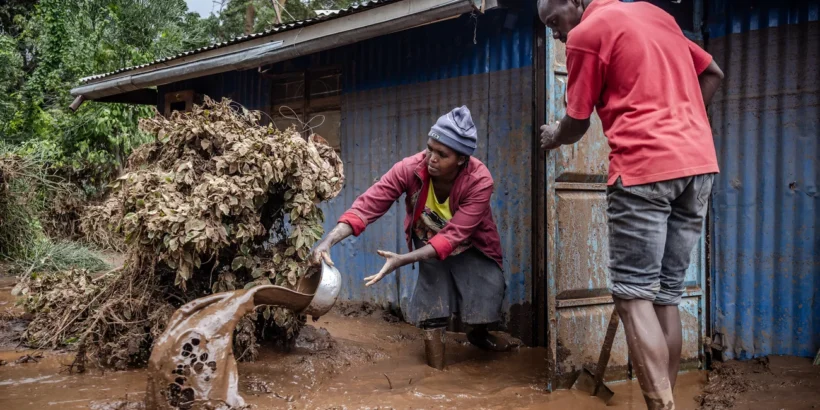In addition to improved water and sanitation, typhoid conjugate vaccines (TCVs) can prevent illness to at-risk communities during extreme weather events.
Heavy rains and flash flooding in Kenya have displaced thousands of families and caused catastrophic damage. The country was strongly affected as rainwater overflowed rivers and led to landslides, causing numerous casualties; damaging croplands; destroying homes, businesses, and schools; and washing out roads.
Flooding and typhoid
Infrastructure damaged during flooding often leaves affected communities with inadequate access to clean water, sanitation, and hygiene (WASH). Water can become contaminated with bacteria, increasing the risk of typhoid transmission. Such circumstances can also increase the risk of cholera and other waterborne illnesses. Those who have lost their homes to flooding or individuals temporarily displaced by initial weather damage are at increased risk when drinking unsafe water or lacking access to sanitation facilities. Additionally, heavy rain and flooding can limit access to healthcare when facilities are damaged or transportation routes are blocked or washed away.
The floods that hit Kenya between April and May 2024 were attributed to climate change as the country experienced a change in the frequency, patterns, and intensity of rainfall. These changes are apparent in other regions of the world, with extreme weather events in Brazil, Afghanistan, and the greater East Africa region leading to an increased risk of typhoid and other water borne diseases.
TCVs: a preventive solution
During extreme weather events, renovating and improving damaged WASH infrastructure often require long term investment and significant resource allocation. While advances to WASH systems are important in the long term, communities often need protection from diseases without delay when faced with extreme weather conditions like flooding.
Introducing typhoid conjugate vaccines (TCVs) offers immediate protection against waterborne diseases to at risk communities. TCVs are safe, effective, and offer protection for at least four years.
The Ministry of Health in Kenya plans to introduce TCVs into the routine childhood immunization program in 2025. The introduction of this effective preventive tool demonstrates great progress in protecting the health and wellness of communities in Kenya, especially in the context of extreme weather events such as the recent flooding.
As countries grapple with climate change and its impact on the spread of vaccine preventable diseases, TCVs can help alleviate the impact of flooding and waterborne diseases.
Cover photo: Kenyans try to get mud and water out of their house in Mai Mahiu, an area heavily affected by rains and flooding. Credit: Luis Tato/AFP via NRP Goats and Soda.



